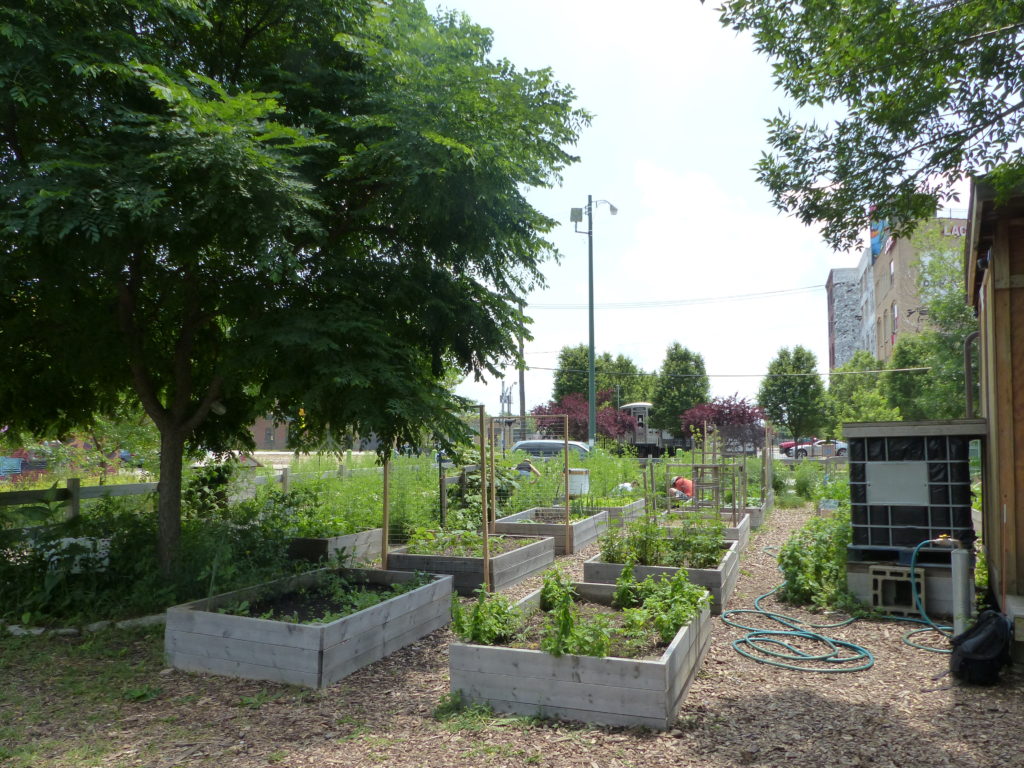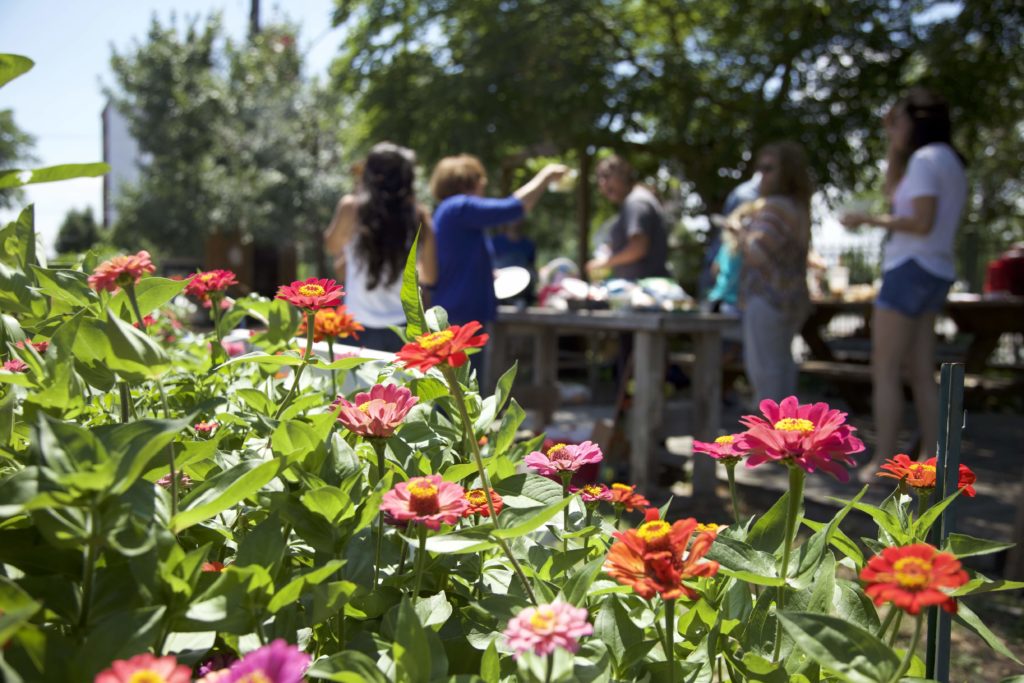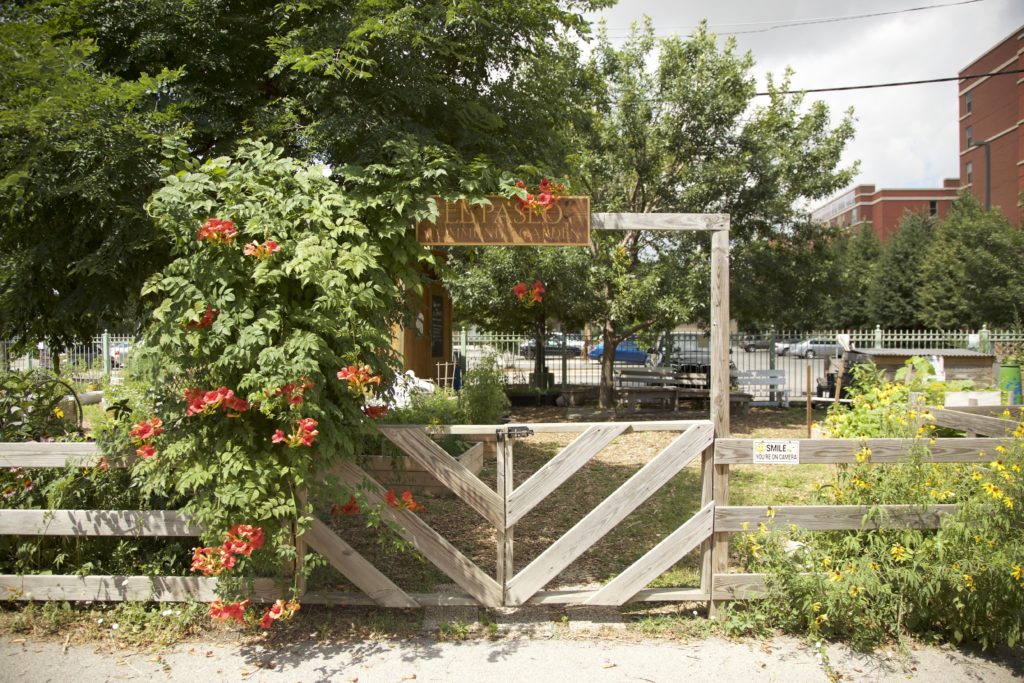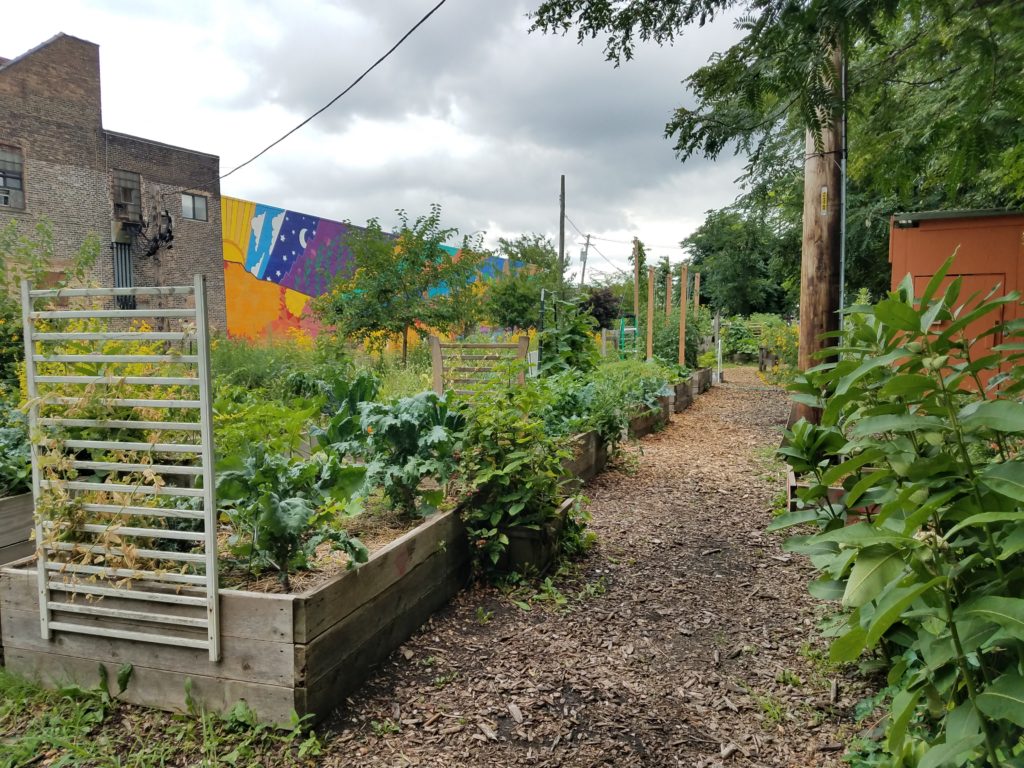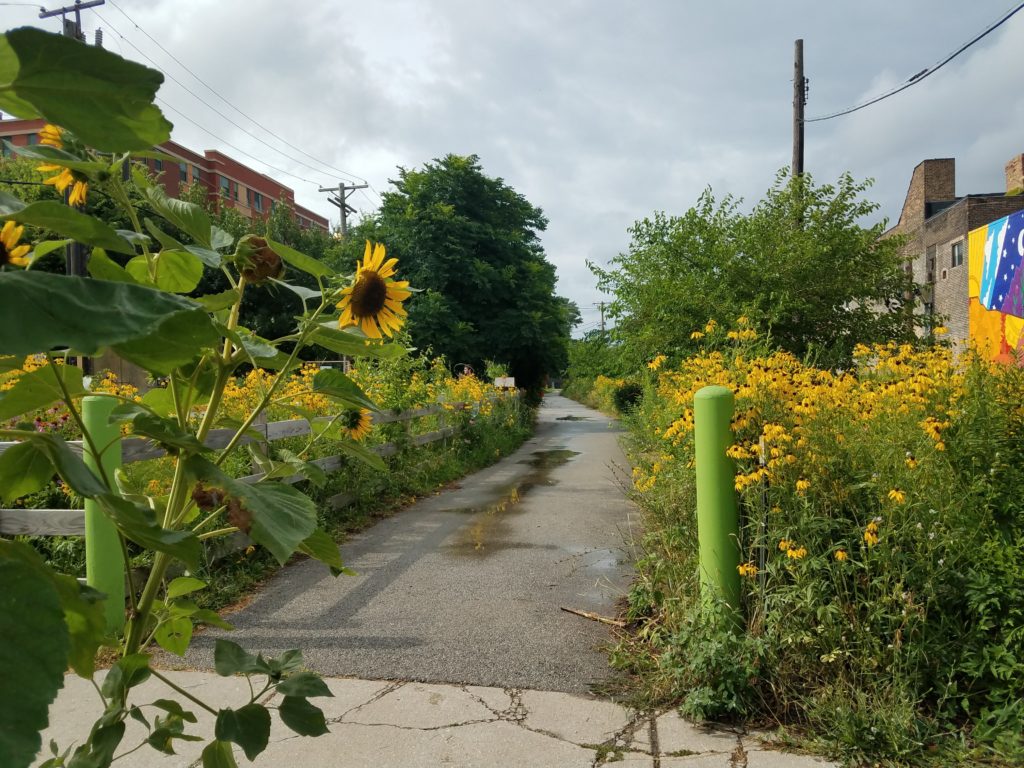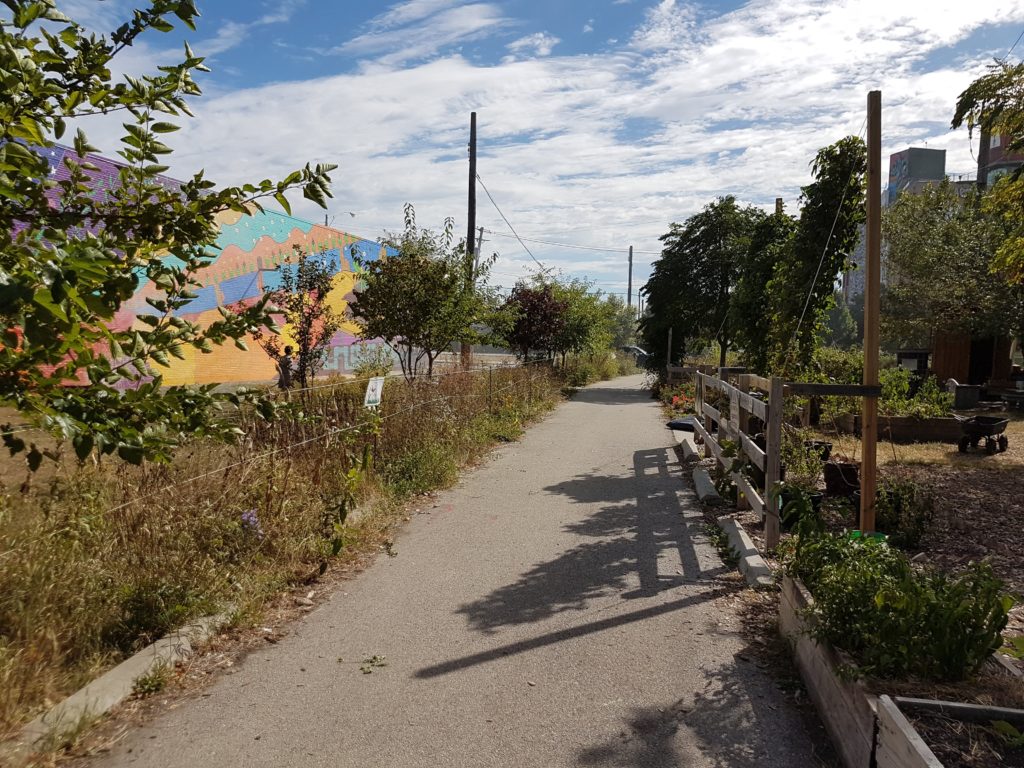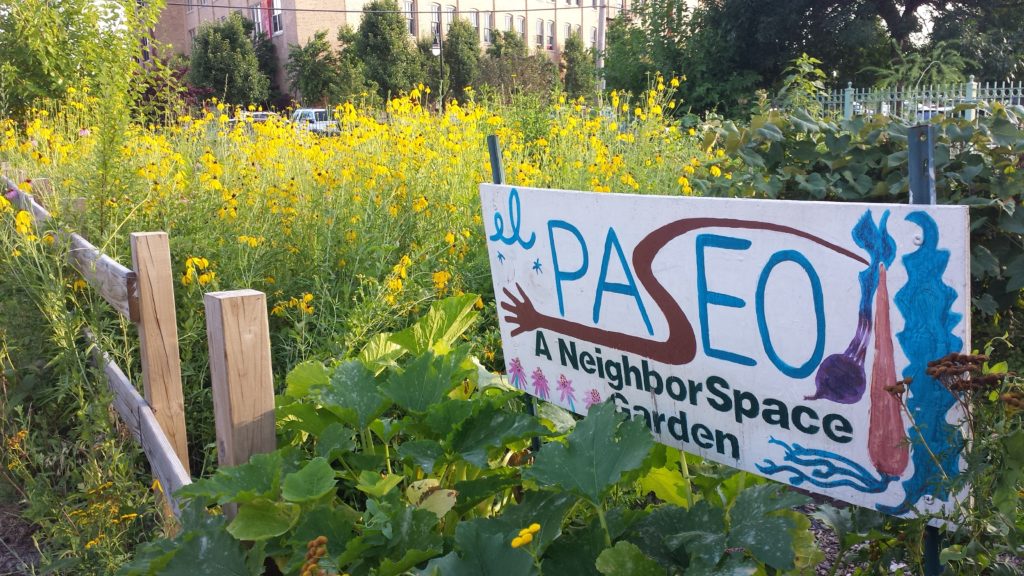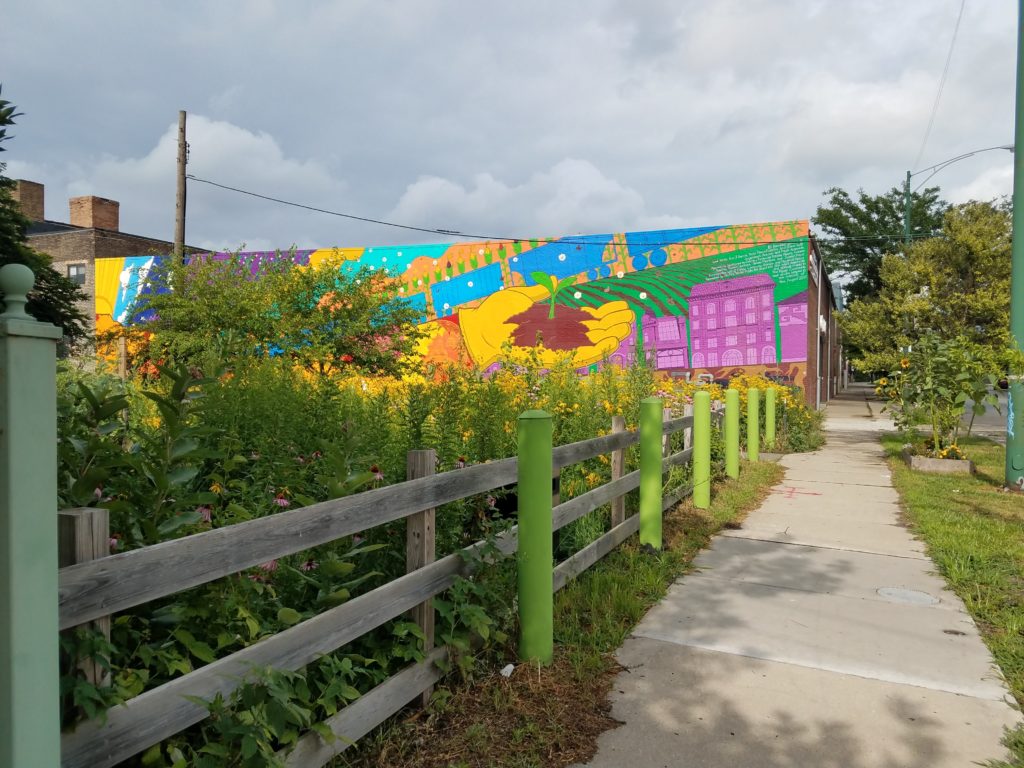El Paseo Community Garden is Awarded a Creative Placemaking Award
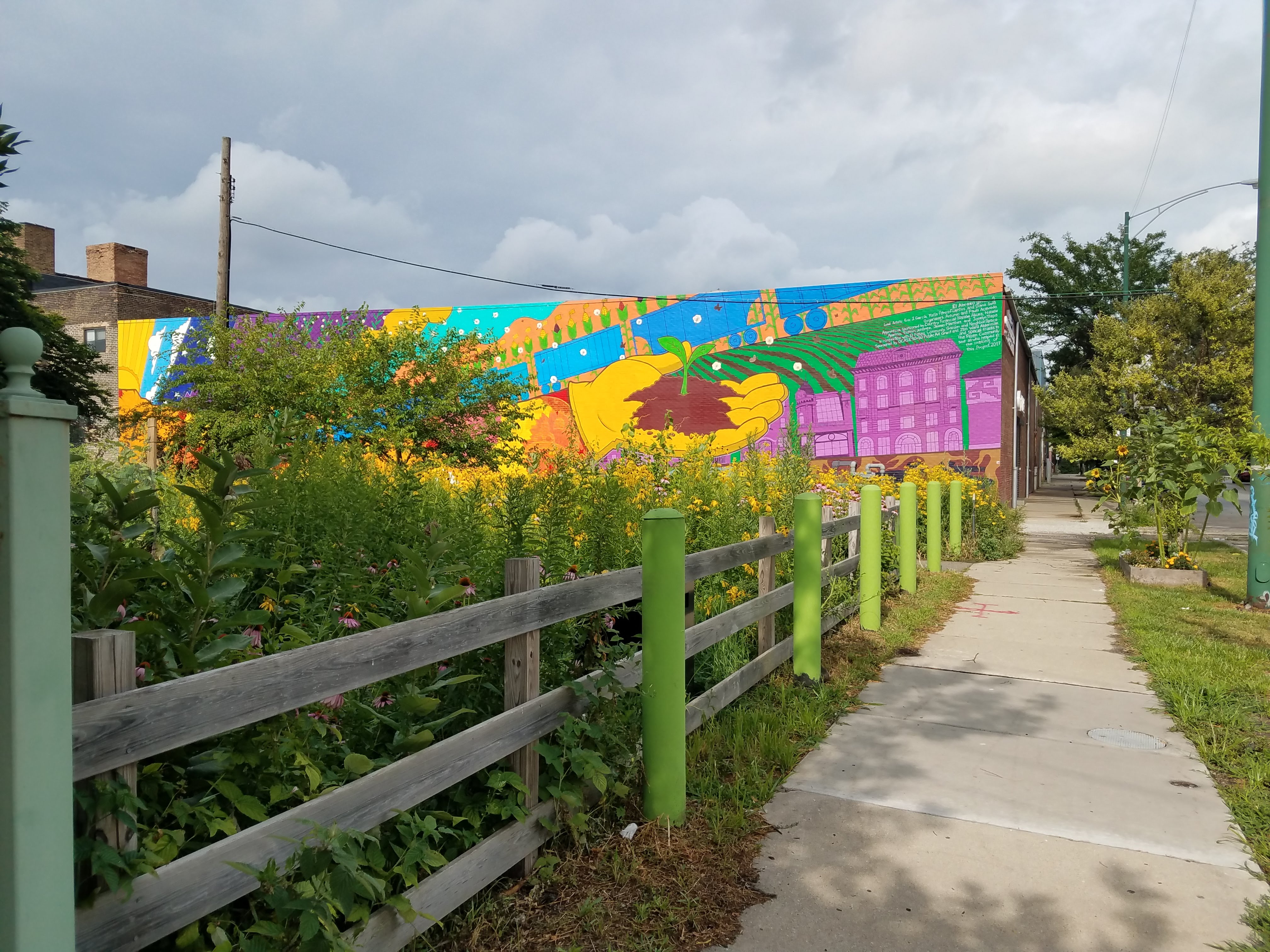
El Paseo Community Garden enhances the quality of life for Pilsen residents through community building, stewardship, conservation, placemaking, partnerships, programming, and community gardening. The converted brownfield site provides opportunities to socialize with each other, plant and grow food, play, or simply be outside and enjoy the wildlife and fresh air the native plants provide. The garden (29,172 SQ FT) and adjacent land it stewards (14,586 SQ FT) serves as a public green space for the neighborhood and as a backyard for neighbors in the adjacent senior living and affordable housing apartments. The garden sits along a path with a monarch butterfly prairie on one side and raised beds on the other. Gardening is offered through private allotment beds or collective beds. Collective beds eliminate waiting lists for allotment beds and allow anyone to get involved. Free food beds are included on the perimeter of the collective beds for visitors.
Many residents can be seen through the space gardening, walking, jogging, biking, and participating in El Paseo’s free programs like weekly Bee Informed, Kids Garden Days, Community Yoga, and Community Meditation. El Paseo partners with adjacent Alivio Medical Center and Satellite Senior Center to engage seniors and use the space for programming including meditation, fitness, dance, and gardening. Through this partnership, El Paseo also hosted Harvesting Health: Fall Festival in 2018 and a Pop-up Market in 2019. The garden space unites the community across diverse cultural and socioeconomic backgrounds. Residents all work together to help maintain this oasis and make a difference in the community. This socialization and unity honors Pilsen’s strong family roots, the most treasured characteristic of the neighborhood.
El Paseo Community Garden’s accomplishments prove that community gardens can be so much more than veggies. Community-managed greenspaces reflect community vision and create an empowering feeling of pride and ownership. These spaces create community leaders, providing a platform to collaborate through programming, art, urban agriculture, and much more. El Paseo is inclusive of all their community and engages them through programming and community design. The garden was created from a community need and desire to have access to more greenspace. From its inception in 2009 to today, the space has continued to be shaped by the needs and desires of the surrounding community. Everything provided in the space, from projects to programming, has been made possible through the dedication and hard work of volunteer leaders from the surrounding community. The governance and leadership structure allows for anyone with a desire to make an impact to do so, growing not only healthy food, but community leaders as well.
For instance, two of the gardeners wanted to become beekeepers so the garden sponsored their education through a new beekeeping program and are now able to fund this program with proceeds from honey sales. The outdoor space has become a community center and partner for anyone willing to share accessible community resources. Yoga and meditation began because fellow neighbors approached the garden leaders to host their programs, and we were able to provide the space and social media outreach to ensure the success of these programs. El Paseo’s Haunted Garden Halloween event began the same way when neighbors presented the idea of a haunted garden in 2018. El Paseo provided the space and outlet for their neighbor to explore her creativity through an annual, family friendly, Halloween event.
El Paseo Garden has organized two large community-driven murals, an outdoor classroom, a permaculture food forest, and are currently planning an ADA accessible gardening station with a picnic area. All these projects included community design meetings with special emphasis on residents from the adjacent senior apartments. Every large project has been funded through grants and created through a community process.
The public art at El Paseo Community Garden not only addresses community needs but empowers local residents through our community driven process. The community always has a hand in El Paseo’s art projects, which instills a sense of pride and ownership in those that participate. For example, there was a need for seating areas along the path, so El Paseo built 5 blank benches and partnered with Elevarte Community Studio to paint them through their children’s program. As a result, now there are beautiful benches that depict messages of health, community, and nature that the public can use while visiting. For the murals, community members helped shape the mural themes by participating in public workshops and were then invited to help paint during community paint days.
The leadership team at El Paseo Community Garden continuously applies for grants and opportunities to support their initiatives. On average the co-directors Paula and Antonio Acevedo apply for 3-4 grant opportunities yearly. In 2019, a community partner at Alivio Medical Center shared the link for the Chicago Development Awards. Thanks to this tip, the directors were able to apply for the MacArthur Foundation Creative Placemaking Award and by the end of 2019 they were notified they were finalists. On May 6th they were recognized via a virtual ceremony and awarded $15,000 along with it. The Acevedos credit their founders Sallie and Ron Gordon and their land trust, Neighborspace, for trusting them to carry on their vision. Gratitude is also expressed to all the organizations who have provided support through sponsorship, partnerships, and various donations. The success of our garden is possible by the countless volunteers that help maintain the space and provide programming.
Over the past few years, the leadership team has slowly been expanding programs and finding ways for them to become sustainable. In 2019 they were able to sell honey for the first time, sustaining the beekeeping program and other garden activities as well. El Paseo has also partnered with Lo Rez Brewing down the street to brew El Paseo Pale with hops grown in the garden for 2 consecutive years. A dollar for every pint sold is donated back to the garden, which helps cover costs of tools and materials, events, and stewardship day refreshments throughout the year. We hope to expand our garden to include a production farm to sell our own produce, which provides another source of sustainable income. Some of the MacArthur Award will be allocated to provide seed money for future programs and initiatives. Currently the garden is volunteer run, but the goal is to be self-sufficient and produce enough revenue to create jobs and continue their mission.
The Award will also support the Acevedos’ hopes to expand their stewardship to include an adjacent lot at 947 W. Cullerton, an additional 18,635 SQ Ft. “If we can expand to include ‘the lot’, we will facilitate a community design process to identify the community’s desires.” Many residents have already expressed a desire for more areas for young children to play like a nature play garden, picnic areas, exercise stations, trees, dog runs, and public art. They are confident they can continue to make the community’s vision come to fruition, while continuing to improve the quality of life for residents.
The MacArthur Foundation Creative Placemaking Award will help continue their mission to strengthen environmental stewardship and civic engagement while protecting greenspace on behalf of the community. El Paseo leaders strongly believe that green space is a right and not an amenity. It is vital for not only our environment, but our mental and physical health. El Paseo vows to continue maintaining an equitable community-managed space by working with residents and local organizations to serve the most vulnerable.
LISC hosted a virtual ceremony because of COVID. You can watch on their website. https://lisc-cnda.org/
For more information on El Paseo Community Garden, visit www.elpaseogarden.org
Contributed by Paula Acevedo

